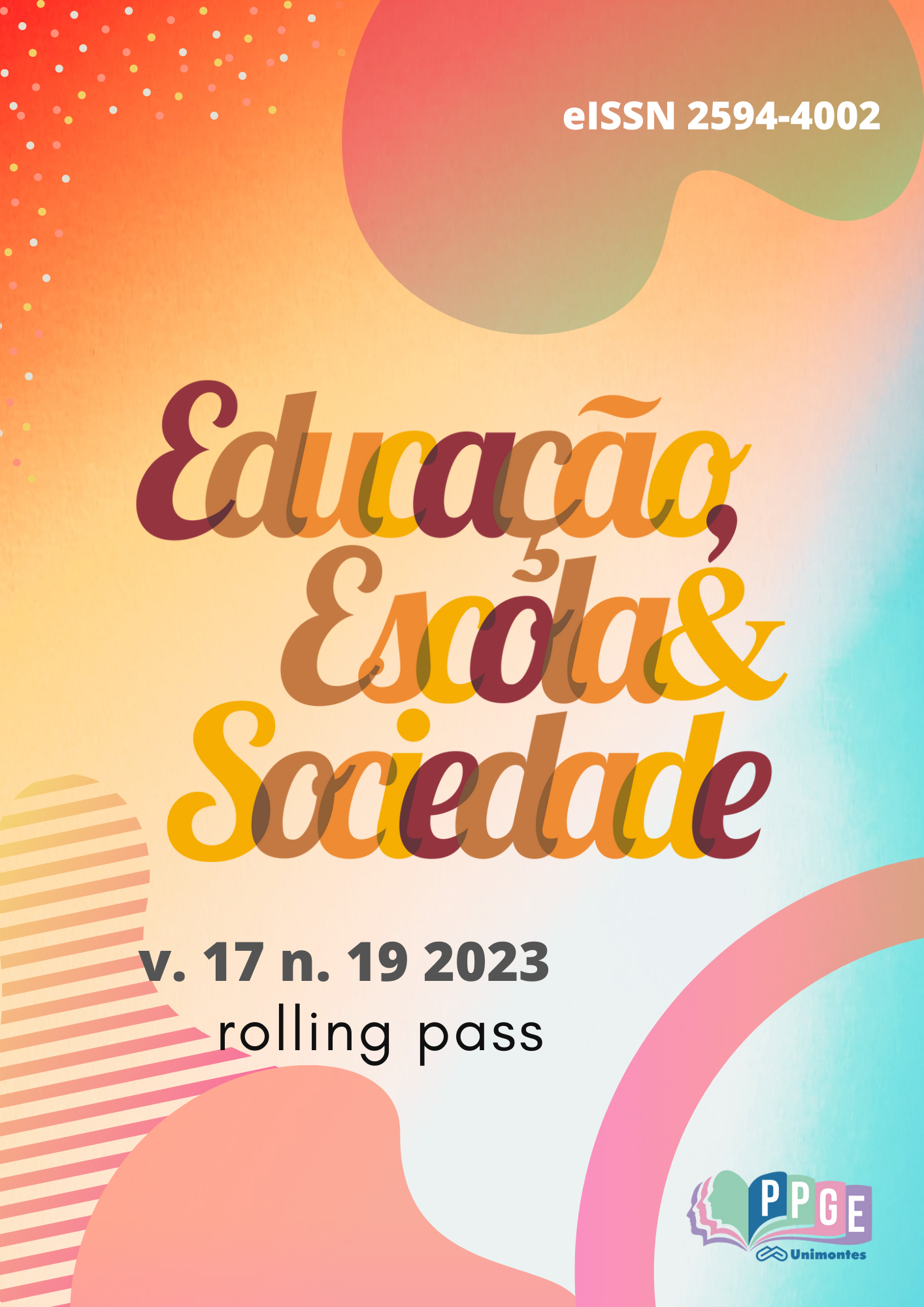O uso de pequenas narrativas como recurso argumentativo para a construção de posicionamentos emocionais:
Uma análise de um debate regrado na aula on-line de Língua Portuguesa durante a pandemia de Covid-19
DOI:
10.46551/ees.v17n19a07Keywords:
Teoria do Posicionamento , Debate regrado, Pequenas narrativas, Sala de aula, Covid-19Abstract
This article uses Positioning Theory (Harré; Van Langenhove, 1999) and Micronarrative Theory (Georgakopoulou, 2006)as a theoretical basis, to analyze the production of positions by 9th grade students involved in a regulated debate on remote teaching in the context of the Brazilian public school in times of the coronavirus pandemic. It was demonstrated, through the analysis of the oral data generated and transcribed according to the assumptions of the Ethnomethodological Conversation Analysis (LODER, 2008), the argumentative and counter-argumentative use of small oral narratives and also the use of emotion for the construction of student positions in the course of the oral debate. The result of a dissertation developed within PROFLETRAS, it stands out with contributions from this work: the appreciation of oral argumentation, the use of short narratives and the education of emotions in the Portuguese language classroom.
Downloads
References
ANDRADE, D. N. P. Recomendações e Prescrições para a Saúde no Pós-Alta: a investigação de um programa educativo a pacientes cardiopatas sob uma perspectiva interacional. 2016. 217f. Tese de doutorado (Doutorado em Linguística Aplicada) –
UNISINOS, São Leopoldo, 2016.
BAMBERG, M. Stories: Big or small – Why do we care?. Narrative Inquiry, 16 (1), 139-147, 2006.
BAMBERG, M. & GEORGAKOPOULOU, A. Small stories as a new perspective in narrative and identity analysis. Text& Talk, 28 (3): 377-396, 2008.
DIVAN, L. M. F. Posicionamentos e Categorizações: mecanismos retóricos para apresentação/sustentação de pontos de vista em situações de conflito. 2011. 203f. Tese de doutorado (Doutorado em Linguística) – UFJF, Juiz de Fora, 2011.
DOLZ, J; SCHNEUWLY, B. Pour un enseignement de l’oral. Paris: ESF Éditeur, 1998.
EDWARDS, D; POTTER, J. Discursive Psychology. London: Sage, 1992.
GEORGAKOPOULOU, A. Small Stories, Interaction and Identities. Amsterdam/Philadelphia: John Benjamins Publishing Company, 2007.
GEORGAKOPOULOU, A. The other side of the story: towards a narrative analysis of narratives-in-interaction. Discourse Studies. Sage Publication; 8 (2): 235-257, 2006.
HARRÉ, R; GILLETT, G. A mente discursiva: os avanços na Ciência Cognitiva. Porto Alegre: Artes Médicas Sul Ed., 1999.
HARRÉ, R.; VAN LANGENHOVE, L. (eds.). Positioning Theory: moral contexts of international action. Oxford and Massachussets: Blackwell Publishers, p. 1-13, 1999.
LABOV, W. The transformation of experience in narrative syntax. In W. Labov, Language in the inner city. Philadelphia, University of Philadelphia Press, 1972.
LABOV, W. & WALETZKY, J. Narrative Analysis: oral versions of personal experience. In J. HELM (org) Essays on the verbal and visual arts. Seattle, University of Washington Press, 1967.
LODER, L. L. O modelo Jefferson de Transcrição: Convenções e Debates. In: LODER,
L. L; JUNG, N. M. (Orgs.). Fala em Interação Social: introdução à análise da conversa etnometodológica. 1. ed. Campinas, SP: Mercado de Letras, 2008, p. 127-161.
MULLER, A. S.; VIEIRA, A. T. O uso avaliativo de narrativas breves na fala argumentativa dos participantes de uma audiência de conciliação no PROCON. EID&A – Rev. Eletrônica de Estudos Integrados em Discurso e Argumentação, mai/ago. 2020, n.
, v. 2, p. 29-48.
PARROTT, W. G. Positioning and the Emotions. In: HARRÉ, R; MOGHADDAM, F. (eds.) The Self and Others: Positioning Individuals and Groups in Personal, Political, and Cultural Contexts.Westport, Connecticut & London: Praeger, 2003.
RIBEIRO, B. T.; PEREIRA, M. G. D. A noção de contexto na análise do discurso. Veredas – Rev. Est. Ling., Juiz de Fora, jul./dez. 2002, v. 6, n.2, p. 49-67.
SCHIFRIN, D. Discouse markers. Cambridge: Cambridge University Press, 1987.
SLOCUM-BRADLEY, N. The positioning diamond: a trans-disciplinary framework for discourse analysis. Journal for the Theory of Social Behaviour, v. 40, n. 1, 2009, p. 79-107.
UNESCO. Cultivar o bem-estar social e emocional de crianças e jovens durante crises. Brasil, 2020. Disponível em:
<https://unesdoc.unesco.org/ark:/48223/pf0000373271_por/PDF/373271por.pdf.multi>.
Additional Files
Published
How to Cite
Issue
Section
License
Copyright (c) 2023 Educação, Escola & Sociedade

This work is licensed under a Creative Commons Attribution-NonCommercial-ShareAlike 4.0 International License.














